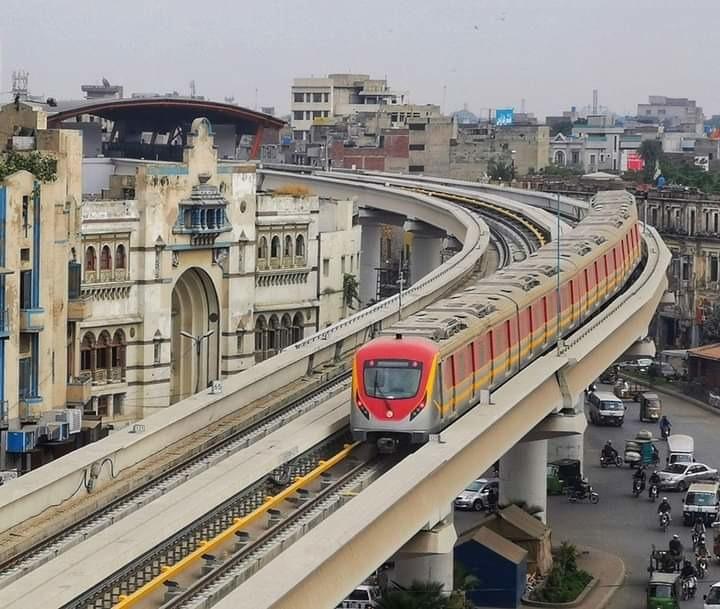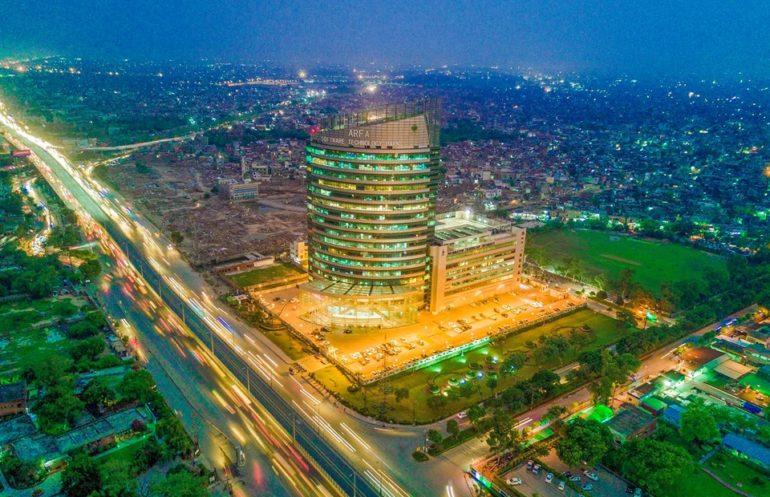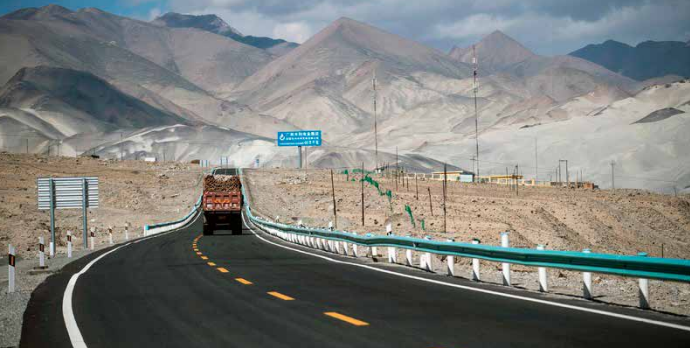As the 2024 elections loom on the horizon, political parties are gearing up with their narratives and slogans, each vying for the attention and support of the electorate. The Pakistan Muslim League-Nawaz (PML-N), led by Mian Nawaz Sharif, seems to have completed its preparations, with a focus on highlighting the transformative impact of its infrastructure development projects.
In his historic speech on 21 October 2023, at Minar-e-Pakistan, Mian Nawaz Sharif elucidated the PML-N narrative by directing the public to the tangible results of their governance – the Orange Line train in Lahore, the Green Line in Karachi, and the network of metro buses in various cities, the Peshawar–Islamabad motorways, and many other key projects across the nation.

While political opponents often criticise the emphasis on infrastructure, portraying it as mere showmanship, it is essential to conduct a reality-based analysis to discern whether infrastructure development is truly a game-changer or an economic burden.
The backbone of a nation
Infrastructure serves as the backbone of a nation, boosting economic growth, connectivity, and societal development. The impact of well-planned infrastructure extends beyond physical structures, influencing industries, quality of life, and a country’s overall competitiveness.
Economic growth
PML-N’s emphasis on infrastructure development is exemplified by the launch of the China-Pakistan Economic Corridor (CPEC) during Nawaz Sharif’s tenure as Prime Minister. This flagship project significantly boosted Pakistan’s economy, leading to a peak GDP of 6.2 per cent. The western route, especially benefitting Balochistan, transformed perceptions of the region. The Gwadar Port development under CPEC aimed to make it a key trade hub, connecting Pakistan not only internally but also globally.
For developing nations, infrastructure investments are crucial for sustained growth and marketability on the global stage
Quality of life
Accessible and efficient infrastructure, including roads and public transport, directly impacts the quality of life of people in the connected areas. PML-N’s focus on building motorways reduced travel time, fuel consumption, and enhanced connectivity. Public transportation projects like the Orange Line Metro in Lahore and Bus Rapid Transit systems in various cities have not only facilitated daily commuting but also contributed to environmental sustainability.
Innovation and development
PML-N’s governance saw advancements in technology infrastructure, from optical fibre in the 1990s to the current status of 3G and 4G networks. Initiatives like the Information Technology University and Arfa Karim IT Park showcased a commitment to promoting innovation and technological growth.
Job creation
Infrastructure projects, by their nature, generate employment opportunities, providing a stimulus to the economy. PML-N’s success in maintaining a low unemployment rate has been a crucial factor in economic stability.
Global success stories
Examining developed nations like Singapore, Germany, South Korea, and the United Arab Emirates reinforces the idea that strategic investments in infrastructure play a pivotal role in economic growth and global success.
 The imperative of infrastructure development
The imperative of infrastructure development
For developing nations, infrastructure investments are crucial for sustained growth and marketability on the global stage. Collaboration between the public and private sectors, along with international partnerships, can amplify the impact of these investments and ensure long-term sustainability.
In conclusion
Infrastructure development is not merely about concrete and steel; it is about laying the foundation for progress, encouraging economic vibrancy, and enhancing the overall well-being of a nation’s citizens. While PML-N has historically emphasised infrastructure development as a cornerstone of governance, the long-term effectiveness and impact of these initiatives remain subjects of debate. As the 2024 elections approach, the public will decide the fate of the narrative presented by political parties and whether infrastructure development is truly a game-changer or a mere show-off.
The writer is a political activist and works in youth development.








